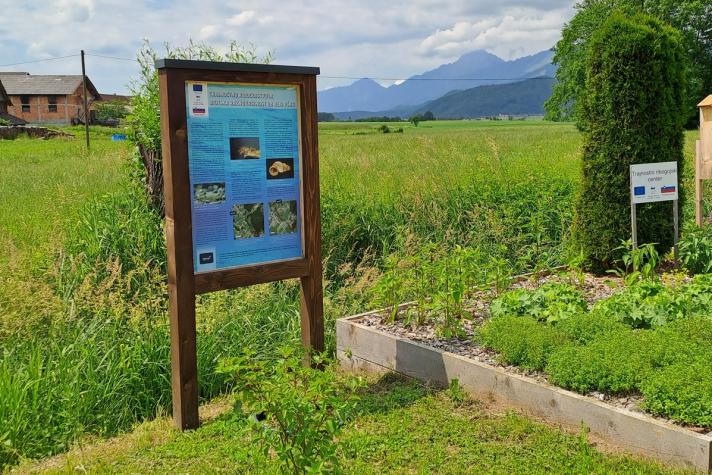A plan to make a Slovenian trout farm self-sufficient in renewable energy has become a regional model of water use, waste management, biodiversity and social engagement.
Climate change resilience requires energy-intensive solutions
The Gorenjska region of Slovenia has historically been a great place to farm trout, with plentiful supplies of clean, cold water from the mountains that extend north to the Austrian border. Drought and decreasing oxygen levels forced the trout farm Vodomec d.o.o., in the village of Zalog pri Cerkljah, to close several of its pools in 2021 and 2022. In summer 2023, devastating floods washed away most of the farm’s remaining stock.
In business since 1964, Vodomec realised energy-intensive artificial aeration would be necessary for rainbow trout – and the company – to survive future high temperatures and water shortages.
Renewable energy supports flourishing trout farms sustainably
Thanks to the support of the European Maritime and Fisheries Fund (EMFF), Vodomec invested in solar panels and an electric vehicle charging station.
Snowball effect includes energy audits and innovative waste management
Energy audits across six trout farms in the area helped reduced dependence on the grid, including via an energy-efficient cold store at Zalog to replace individual refrigerators.
A new waste dehydrator extracts up to 80 % of the water in fish gutting and filleting waste, greatly reducing the volume handled by specialised waste management companies.
Raising biodiversity and sustainability awareness and creating jobs
The project went far beyond technical developments, creating jobs and fostering a vibrant engaged community. Zalog is now a training centre for sustainable fish farming, including as a teaching site for veterinary students from the University of Ljubljana.
The Zalog fish farms have set up a “honey garden” to raise awareness of biodiversity and sustainability, hold educational workshops and display information boards. The project’s activities have started discussions on healthy eating and broader environmental questions.
More information
Slovenian fish farms get greener - European Commission
Website of Vodomec d.o.o fish farm
Video on the project (in Slovenian)
Interview of Janez Vidmar (Director of Vodomec d.o.o.)

